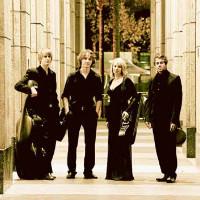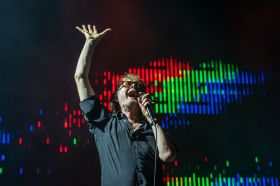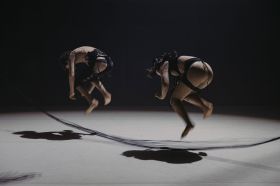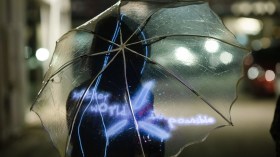Perhaps he was not suffering from a cold, though; perhaps he was trying to add some wind to the strings. The airy punctuation was ever-present throughout the pieces on offer, a short and sharp breath usually coming at the start of a phrase. But perhaps this is how he plays, filling his lungs with shallow gulps and holding his breath until the phrase is finished. Nevertheless, it was more distracting than one would have liked, though it didn’t spoil the afternoon.
And what a curious afternoon it was. The program was a rather rare compilation for a concert at the Opera House, having three pieces by Australian composer Paul Halley – a self-confessed modern-romantic and still very much alive – and one piece by Mendelssohn. One is always looking towards the new in classical music, and unfortunately the major orchestras often seem to get the balance wrong, focusing too much on a past that is safe rather than a future that is risky. Understandable, yes, with commercial considerations coming into play, but regrettable nonetheless. So when one is presented with a program of almost entirely new work, one takes notice.
The first piece was Angel by Paul Halley, a tenuously fragile six-minute work that contains an almost solo role for the first violin, while the others accompany. It suggests a forlorn delicacy, and the experience of listening to it is one not so much of pleasure but comfort, and this was precisely the same feeling that was engendered upon listening to the last piece of the program, The Hand of Fate, a nine-minute work inspired by Beethoven’s famous “Fate” motif. If Angel was meditative, then The Hand of Fate was all movement.
The most interesting of the three new pieces was Halley’s String Quartet no 2 in E minor “Winter”, a three-movement work that aims to suggest a cold and icy scene but in the opinion of this critic is less than successful in doing so (and one had a view over the miserably overcast harbour as the piece was being played as well). This is not to say that the piece was a failure – far from it – but that it often felt lacking in the images it set out to depict. The second movement, Adagio “Midnight” was the best of the three, its underlying pizzicato and mournful meanderings capturing a version of sadness (which in this case did conform to the program notes). There was a slight depth to this piece that was lacking in the other two.
Mendelssohn’s String Quartet no 2 in A minor filled out the rest of the program, and was played with great aplomb by the Orava String Quartet – here was an almost effortless plunge into the darker places of the soul that added a yearned for extra dimension to proceedings. Overall, a pleasant two hours.
Rating: 4 stars
Orava String Quartet
Performing Australian composer Paul Halley and Mendelssohn String Quartet no. 2 in A minor op. 13
The Utzon Room, Sydney Opera House
Sunday December 11, 2011






